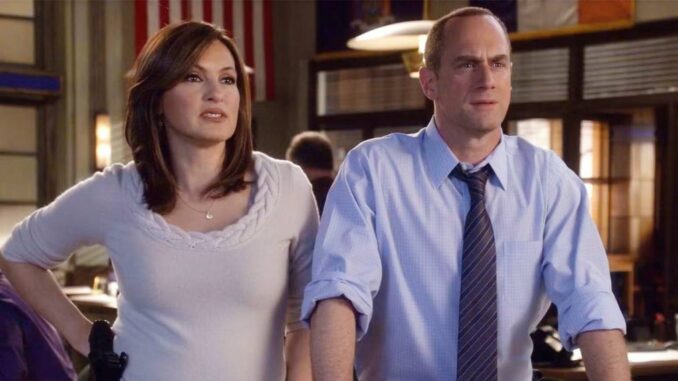
The departure of Christopher Meloni as Detective Elliot Stabler from Law & Order: SVU after season 12 remains one of the most discussed and lamented exits in television history. While the on-screen chemistry between Meloni and Mariska Hargitay (Detective Olivia Benson) was undeniable and integral to the show’s success, the narrative that Hargitay could have somehow prevented his departure is a gross oversimplification of a complex situation involving contract negotiations, studio politics, and ultimately, Meloni’s own career aspirations. It’s crucial to understand the circumstances surrounding his exit to appreciate why Hargitay, despite her close relationship with Meloni, lacked the power to alter the course of events.
The Impasse: Contracts, Negotiations, and the Bottom Line
The primary reason Mariska Hargitay couldn’t stop Christopher Meloni’s exit boils down to contract negotiations. In 2011, both Hargitay and Meloni’s contracts were up for renewal. However, the economic climate was significantly different than when SVU initially premiered. The 2008 financial crisis had a ripple effect throughout the entertainment industry, leading networks to tighten their budgets and prioritize cost-cutting measures. Meloni and Hargitay were reportedly seeking similar salaries, reflecting their equal importance to the show’s dynamic. However, NBC was reportedly unwilling to meet Meloni’s demands, leading to a stalemate.
Several factors contributed to this impasse, including:
- Budgetary Constraints: As previously mentioned, NBC faced significant financial pressures, making them hesitant to offer substantial salary increases.
- Negotiation Tactics: Contract negotiations are often a high-stakes game, and disagreements over salary and other terms are common. It’s possible Meloni’s team and NBC were too far apart in their respective positions to reach a compromise.
- Studio Prioritization: While the Benson-Stabler dynamic was a major draw, studios often prioritize the long-term financial viability of a show. Meloni’s departure, while a blow to viewership, might have been seen as a necessary sacrifice to keep the show running at a more manageable cost.
While Hargitay certainly had influence within the SVU world, particularly given her rising role as a producer, her influence was not absolute. Contract negotiations are largely handled by agents, lawyers, and studio executives, and even a close colleague like Hargitay would have limited leverage in influencing these high-level financial decisions. She likely advocated for Meloni, but ultimately, the negotiations were out of her hands. Suggesting she could have single-handedly reversed the outcome minimizes the power dynamics within the entertainment industry and the autonomy of Meloni’s own decisions.
Furthermore, it’s important to acknowledge Meloni’s own agency in this situation. While the contract dispute was a major factor, it’s possible he also felt ready to move on to other projects and explore new creative avenues. After twelve seasons playing the same character, he may have simply desired a change. To suggest Hargitay could have prevented his departure ignores the possibility that Meloni himself was open to leaving.
In conclusion, while the on-screen magic between Mariska Hargitay and Christopher Meloni was undeniable, the circumstances surrounding his SVU exit were far more complex than a simple narrative of friendship gone awry. The reality involves contract negotiations, budgetary pressures, and the individual choices of the actors involved. To claim Hargitay could have “stopped” Meloni’s departure is to misunderstand the intricate workings of the television industry and to diminish the agency of all parties involved.
